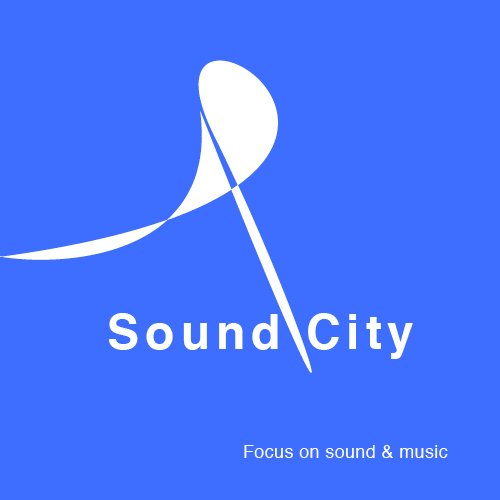The Hub & town artists
example: Sound City

Sound City
Imagine a town where every towner has a connection to music. I mean even the bakers tap their feet while working, and some buns are specifically made for breakfast percussions. I am not sure the nurses in the ears clinic sing, but maybe they start their day with a dance — with the patients.
And imagine a town which is composed and built like a symphony. Nothing in this town is random, everything is dedicated to sound and music, waves and valleys, and to coexisting with nature and with each other.
Another Sound City could be a patchwork of different music styles, all coming together in the city’s centre.
Artists will find everything they need to nurture and live their talents.
For more on Sound City see the project’s website: towns & cities international >
The Hub & town artists
Enter the Hub.
Independently of a town, any artist or groups of artists can create spaces on the Hub to present their work or to collaborate. This includes concerts, jam sessions, workshops and more. Plus their work is presented as part of the sound basement, and their work can be bought in the Hub’s shopping street. Artists get paid for each song played on the Hub, and they set workshop or session prices with the Hub. The Hub takes care of all transactions. Flat rates for users are unlikely. At the start of the Hub several payment models will be tested to find the one that works best for all parties.
An artist in Sound City (and in other towns which use the Hub) can use the town’s Hub space for additional options.
- announce and promote local concerts + ticket bookings directly via the Hub
- present ideas for local collaboration
- search database of local artists
- set up a local collaboration space on the Hub
- use the community news feed
- offer studio visits for locals
- offer discussions
- offer music lesson
- and probably more
Case 1: Sound City says yes
Zo Long finally gets the message that a spot in Sound City has become available and that, if she is still interested, she could move to the city in a month. Zo has been ready for months. She follows the link included in the message and registers with Sound City directly. In the application process, Zo already answered heaps of questions, and now she has to confirm that yes, she is still a singer. Yes, she is in contact with three bands who are interested in working with her, but she is also on the lookout to put together her own band. And yes, she will make time to compose songs and is happy to teach at the music academy. She is also still interested in becoming one of the music guides in the city.
All questions answered, Zo registers with the accommodation service, the health centre, the music academy and so on. That is to say, she confirm that she wants to register with all of these places, and here and there she answers a few additional questions.
The next step is to take a look at the apartments on offer. She picks three and confirms that she will visit Sound City in a week to take a look at the apartments, to meet with the people she is going to work with and to take another stroll in the city that has taken her by storm.
Once all this is sorted, Zo takes a break. Then she laughs out loud and shouts: It’s happening.
After a good long break and some cooling down of the excitement, Zo logs into the Sound City space again and starts exploring its citizens, its offers, its events.
Case 2: Mush in trouble
It’s morning and Mush logs into his Sound City Hub account. Like on the big Hub, users can adapt their town space to display what they want and make it look the way they want. Mush is all for green, and that has nothing to do with mushy peas, he swears whenever someone teases him about his choice of colour.
Mush’s start page is practical. It is headed by the total of his earnings this month, plus in smaller type the sum of his earnings in the last six months, and the balance on his bank account. He has an account with the project bank which is connected to the Hub.
Below these figures are his appointments. Mush sighs. He has been spending too much money, and he has caught a cold so that he has to cancel upcoming events.
Sound City has a strict policy when it comes to overwork or working when sick. (And to pretend that you are OK when you are not can get you blocked for some weeks or months. So no one tries that — well, not twice.) It was a helpful rule even though everyone grumbled about it. But the town’s research attested the town’s artists a much better health and happiness than in other environments, so the grumbling was done with a bit of a smile. There was, after all, something caring about this rule.
And the Hub was an enormous help in situations like this. You simply clicked on cancel and please, yes, try to find an alternative date because I spent too much of my money. And yes, I will send a note when I am well again. And the Hub did the rest, including forward get-better messages. If you wanted to see a doctor you could let the Hub book it for you, or the Hub could arrange for a doctor to come and see you. Plus the Hub had a direct line to the town’s helping hands, in case Mush needed someone to do some shopping or cleaning for him. And if the money situation got worse, then financial support could be requested via the Hub. This was usually in form of a low-cost loan. The Hub handled the payback via transferring an agreed amount from every future event or income back to the project bank. But for a few weeks Mush would be OK financially, and he was hopefully up and running again before he ran out of money. The project bank offered some saving options. Maybe it was time to grow a little buffer.
Coughing and feverish, Mush logged out, made himself a tea and afterwards heaved himself back into bed.
Case 3: Samuel is worried
Samuel was the child of a dancer and a composer, and quite frankly by the age of nine, he was terrified. He had tried to learn instruments and he had tried to dance, but while he loved Sound City, he just wasn’t musical.
One day, he trusted in his friend Kojo who laughed. And laughed. And laughed.
‘Stop it, will you!’ Samuel shouted angrily and hurt.
But Kojo shook his head. ‘I am not laughing about you. I am just happy.’
‘Why?’ Samuel asked suspiciously.
‘Because that means we can remain friends, and we can do something cool together. We love music. But we don’t do music. We could work for the city’s gardens, I love The Senses Gardens. It gives me the tickles. Or we work for the city’s train company and we can take free rides on the music night trains, sitting on the roofs. Or we work for the city’s–‘ here Kojo stopped, looking embarrassed.
‘dot.station and do fashion,’ Samuel said, knowing is friend well. And Kojo laughed again, a bit lopsidedly. Apparently, he had an aunt who disapproved of boys working in fashion. But she didn’t live in the city, so she didn’t know better. ‘Exactly.’
For the first time in weeks, Samuel felt some happiness flow back into him. Kojo was right. They could stay in Sound City even if they didn’t have a bit of musical talent in them. So long, as they loved music, everything was fine. ‘But how?’ Samuel said, only then noticing that he had spoken aloud.
Kojo pulled Samuel over to his computer and logged into his Sound City Hub account. There he showed Samuel the special features for children and adults of all ages who were uncertain what to do or what to do next. There were several tests they could take, reports about workplaces they could watch, and offers of paid internships and—
‘This is what we’ll to do,’ Samuel said, pointing to a blue field. ‘We select ten or twelve city jobs we might be interested in and visit each of these places.’
‘Job hopping for kids,’ Kojo nodded. ‘Look here, we can even work at these places. Just a few hours and payment will be delayed until we are grown up. But still. It’s a fair deal.’
Both kids registered for the job hopping programme. Their parents and their school would have to agree but that was all arranged by the Hub. So all they had to do was get out and take a dive in The Senses Garden, followed by a stint in the Dance Garden (just to watch and it had one of the best ice-cream carts) and they finished the day with a chase in The Games Garden. Sweaty, tired and happy they returned home.
Case 4: Marcie needs help
Marcie cursed. Her guitar was broken and she needed a replacement now. The show started in two hours. Marcie logged into the Hub and clicked on the instruments emergency button. Within seconds, Marcie smiled. The Hub had found her a workshop which could squeeze in the repair of her guitar and deliver it to her at the venue.
Case 5: A new song
Kim took a deep breath. Then she played the song again, and chuckled. This would need some more polishing but it was really good.
Kim made herself a coffee and then logged into the Sound City Hub space. She found the meeting hall for collaborations. It was brimming with messages. She found the search field and narrowed down the search. She actually wanted to work with three or four people who came from different musical backgrounds, because her song had the potential to merge styles, and she wanted to find out how far that could be taken without cramming styles.
After some more searching and some messages, Kim and six other people set up a collab for Kim’s song. Since all wanted to be present but not all could stay right now, they agreed to start in three days.
A week later the group tested their creation in front of a selected Sound City online group. The feedback was great and another two artists wanted to add ideas.
Two months later, the song was celebrated as an astonishing achievement, and other groups formed to test the ideas for their creations.
Additional note
There are many other possibilities of how the Hub can work for artists, not just in Sound City, but in other towns and cities, too. The Hub serves as coordinator and matchmaker. Whether this can include businesses like an instrument builder depends on the local business practices. It probably helps that everyone in Sound City loves music and wants things to work.
